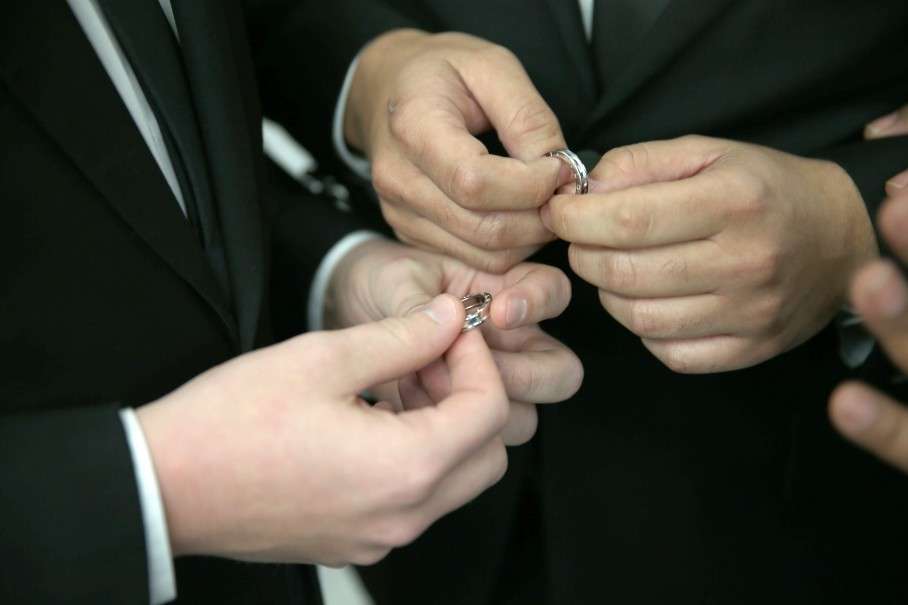The Volokh Conspiracy
Mostly law professors | Sometimes contrarian | Often libertarian | Always independent
Crime to conduct same-sex or polygamous marriage ceremony?

A Detroit minister (Neil Patrick Carrick) is suing to invalidate Mich. Stat. § 551.14, which provides,
If a person authorized to solemnize marriages knowingly joins any persons in marriage contrary to the provisions of this chapter, he or she shall forfeit for each offense a sum not exceeding $500.00.
The chapter states that same-sex and polygamous marriages (among others) are invalid.
As I've argued before, I think the Free Speech Clause protects people's right to conduct same-sex or polygamous marriage ceremonies. A state might well be able to say that such a ceremony has no legal effect. (There's a hot debate about that, of course, as to same-sex marriages, but it's not a First Amendment debate, and in any case it's pretty clear that a state may choose not to recognize polygamous marriages.) But if people want to engage in such a verbal ceremony, whether for religious reasons or other personal reasons, that ceremony is generally as constitutionally protected as other verbal ceremonies.
There may, of course, be exceptions to this protection, in some situations - just as there are exceptions to Free Speech Clause protection in general. For instance, if people conduct the ceremony as an attempt to defraud the government (or someone else), that would be unprotected. Likewise, if the acts contemplated in the marriage are actually crimes, for instance because one of the "spouses" is underage, then knowingly solemnizing the marriage might be treated as aiding and abetting statutory rape. But whatever is the right answer in such situations, it doesn't apply to many other religious marriages that aren't civilly valid, such as adult same-sex marriages or adult polygamous marriages.
Now if courts read the statutory phrase "joins any persons in marriage ceremony" as limited to situations in which the officiant purports to create a legal union, for instance by signing a marriage certificate that he understands will be submitted to a government official with the hope that the official will be deceived into accepting it, such a narrowly read statute might be constitutional. But the statute seems broader than that, and a similar Utah statute was read as covering even purely conducting a ceremony, absent any attempt to dupe the government or anyone else. The Utah Supreme Court upheld a conviction under that Utah statute, though I think the dissent had the better First Amendment argument there (and there's a district court decision, now on appeal to the Tenth Circuit, that struck down the criminal ban on polygamy, I think correctly; this should also invalidate the ban on solemnizing polygamous marriages). See also this 2004 incident in which a mayor in New York was prosecuted for conducting same-sex marriages.
So I think Rev. Carrick should indeed prevail. Ministers - and others - should be free to conduct verbal ceremonies, even ones that the state may deprive of any legal effect. For a similar take from the Becket Fund from Religious Liberty, related to a similar Indiana law, see here.
Thanks to Prof. Howard Friedman (Religion Clause) for the pointer.


Hide Comments (0)
Editor's Note: We invite comments and request that they be civil and on-topic. We do not moderate or assume any responsibility for comments, which are owned by the readers who post them. Comments do not represent the views of Reason.com or Reason Foundation. We reserve the right to delete any comment for any reason at any time. Comments may only be edited within 5 minutes of posting. Report abuses.
Please to post comments
Mute this user?
Ban this user?
Un-ban this user?
Nuke this user?
Un-nuke this user?
Flag this comment?
Un-flag this comment?